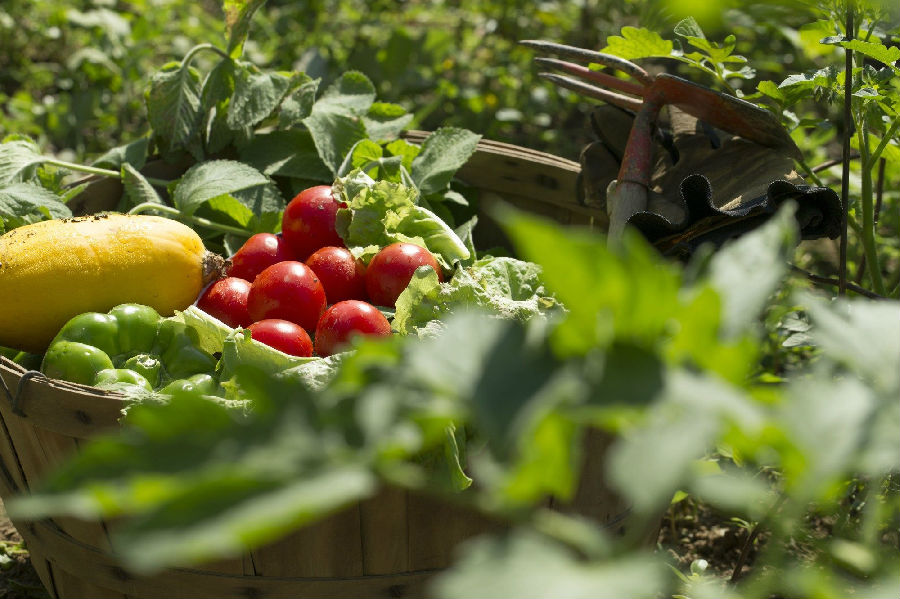This is a story about a farm.
这是一个农场的故事。
Not just any farm, but a place where imagination sprouts up the soil.
但它不是一个普通的农场,而是一个想象力生根发芽开花结果的地方。
We grow really kooky, weird, wild, wonderful, tasty stuff.
我们种的都是很稀奇古怪,很天然又很赞很好吃的东西。
Honestly, the weirder the better.
说白了,越古怪越好。
Like what?
举个栗子?
Mashua, oca, Badger flame beet.
块茎金莲花, 奥卡,獾火焰甜菜。
squashini, Butterfly sorrel, Sunset sorrel, pichuberries, pineberries, white alpine strawberries, ice plant.
南瓜西葫芦,蝴蝶酸模,日落酸模,果莓,菠萝莓,白色高山草莓,冰菜。
Wait, what was the last one? What you never heard of ice plant? Uh, no.
等一下,最后一个是什么来着?你没听说过冰菜吗?呃,没有。
Meet Aaron Choi.
下面有请崔亚伦闪亮登场。
Aaron never had any intentions of getting into farming.
亚伦从未想过当一个农民。
I had actually planned to grab a Master's and then my PhD in order to teach the study of religion in college.
我本来打算先读个硕士再读博士,再到大学里教宗教研究的。
I took a complete 180.
结果来了个180°的大转弯。
That 180 is thanks to his parents.
而这个180°的大转弯要“归功于”他的父母。
After running a successful flower shop, Aaron and his sisters tried to get them to retire.
亚伦的父母之前经营着一家生意非常好的花店,后来亚伦和他的姐妹们想着让二老退休。

But his parents had other plans.
但他的父母有他们的打算。
Their retirement was to go buy a farm instead.
他们打算退休后买个农场。
They started off growing Korean vegetables for retail markets.
一开始他们种韩国蔬菜然后卖给零售市场的那些人。
But then Aaron got involved, and things took a turn for the bizarre.
但后来亚伦插了进来,事情就变得奇怪起来。
After I got started getting my hands dirty pulling weeds,
自从我开始拔杂草,双手沾满泥土,
obsessing over growing conditions, light, water, temperature, humidity, everything around it,
沉迷于研究那些菜的生长条件,光线,水,温度,湿度等等一切之后,
it just became one elevated experiment after another; and I think that's where I was hooked.
种菜就变成了一个接一个让人振奋的试验,这可能就是让我迷上这份工作的地方吧。
And all of that rang and resonated far better with me than sticking my nose in books all the time, quite frankly.
坦白地说,所有这些都比读书更能引起我的共鸣。
Once he familiarized himself with farm life he took the R&D to another level.
熟悉了农场的生活以后,亚伦又把研发提升到了一个新的层次。
We started experimenting with a lot of different greens.
一开始我们是用很多不同的绿色蔬菜做实验。
Then, that very quickly blew off into a whole host of other relatively unfamiliar products
之后,我们很快就对大量不那么常见的产品进行试验了,
like Pichuberries, Sweet Jade green tomatoes, which nobody's heard of,
比如果莓啊,甜玉绿番茄啊,后面这个大家连听都没听过,
and my favorites, oka and Mashua, which even fewer people have heard of let alone actually tasted.
还有我的最爱,新西兰山药和块茎金莲花,听过这两个名字的人就更少了,更不用说真正尝过的人了。
The goal has always been to target, first and foremost, high-end restaurants
我们的目标一直是把供应高端餐厅放在首位的,
because I think that there's a lot of trickle down effect on new and strange ingredients.
因为我觉得,要大家接受新奇的食材需要大量的涓滴效应。
So how does one pivot from selling bulk retail items to supplying fancy high-end restaurants?
那么,如何从批发零售产品转向供应高档餐厅呢?
I literally started making cold visits.
我其实是从陌生拜访开始的。
Once the chefs started seeing what we were growing, to my surprise they were blown away by the quality of it.
厨师们看到我们种的菜时,令我惊讶的是,他们都被菜的品质给惊呆了。
I regularly get comments like, I can't believe you're growing this.
我经常会听到这样的评价,“我简直不敢相信你们竟然还种了这个。”
Good? Yeah.
还可以吗?可以。
Tart? Sweet. Good.
酸吗?挺甜的。那就好。
It's the specialty side where my obsession fits in line with trying to familiarize the unfamiliar.
将我的热情落实到给大家推介不那么常见的蔬菜是因为这些蔬菜都有着特别之处。
There's a lot to be said about these unfamiliar foods of the world that we really need to introduce more people to.
关于世界上的这些不常见的蔬菜品种,我们是有很多可以了解的,我们也需要把它们介绍给更多的人。
Because the more we popularize, the more conversations happen around those foods; without food we don't have conversation.
因为我们普及的工作做得越好,关于这些食物的对话就越多;没有食物,我们是无法交谈的。












